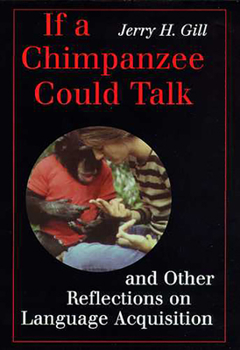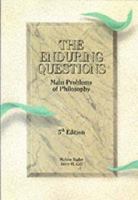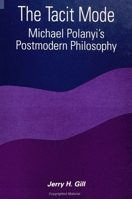If a Chimpanzee Could Talk: And Other Reflections on Language Acquistion
Select Format
Select Condition 
Based on Your Recent Browsing
Book Overview
How is it that chimpanzees can learn to "speak" at a higher level than some so-called wolf children? What happened that day in the pumphouse, when Helen Keller suddenly grasped the meaning of words? And picture this: a father and mother who shun the advice of professionals, who doggedly force their way into the closed world of their autistic son, and who reverse his grim prognosis, revealing him to be gifted. How to explain? In this book, a philosopher combines these famous cases with a lifetime of study to examine the threshold of language--that point "between speech and not quite speech." He provides fascinating accounts of the deaf and blind Helen Keller, of chimpanzees like Washoe, and of feral children such as Victor, the "wild boy of Aveyron," putting a new spin on their stories. When does it start, he asks, that miracle most of us take for granted? Where does it come from, that uniquely human power to transform perception and action into thought and the singular activity we call speech? Here is evidence that, for chimp or child, the crucial factors in acquiring language have less to do with intellect and everything to do with social interaction. Here is confirmation that the "give-and-take, push-and-pull" of daily life forces virtually all of us to acquire language simply to live and work together. Author Jerry Gill offers no pat answers. Rather, he emphasizes imitation and reciprocity--for example, playing pat-a-cake with a baby--as essential to becoming part of a speaking community "and thereby becoming a human being." In addition, Gill gives dozens of examples to show how gesture and facial expression both create and change the meaning of language. In compelling fashion, he underscores the point that language acquisition can be fully understood only in terms of such physical and social activity. The author exposes the flaws of research focused mainly on mental processes and gives little credit to findings based upon artificially contrived experiments. With vigor, compassion, and a broad-minded humanism, these pages invite the reader to think again about how we say what we mean, how we mean what we say, and where it all starts in the first place. Valuable to students of psychology, linguistics, philosophy, and anthropology, the book will also appeal to general readers who welcome an opportunity to explore familiar things in a new and entirely enjoyable way.
Format:Paperback
Language:English
ISBN:0816516693
ISBN13:9780816516698
Release Date:January 1997
Publisher:University of Arizona Press
Length:163 Pages
Weight:0.70 lbs.
Dimensions:0.5" x 6.2" x 9.2"
More by Jerry H. Gill
Customer Reviews
0 customer rating | 0 review
Rated 4 starsGood discussion of the philosophic issues
By Thriftbooks.com User,
This book contains a good surface discussion of the issues. It is a great place to start, but lacks a thorough covering of the scientific data and research one needs to go deeper into the issues. It covers animal language, children raised in severe isolation, Helen Keller, Autism, the Whorfian Hypothesis and more. I thoroughly enjoyed reading this book, especially the chapter on Raun, the autistic boy, and how his parents...
0Report









































